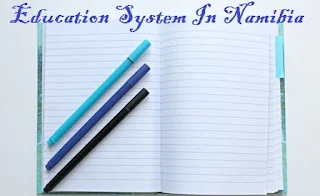Education System In Namibia
When Namibia became independent,
the Ministry of Education and Culture felt that it was necessary to
formulate a new language policy for schools. This policy was detailed
in a document entitled The language policy for schools: 1992-1996 and
beyond (MEC, 1993). This policy instructed that students should be
taught primarily in their home language in Grades 1-3, with further
instruction in these languages being provided throughout their formal
education; additionally, English was to be a compulsory subject
starting in Grade 1, and then become the main medium of instruction
from Grade 4 and onward. The goals of this policy were to utilize
education as a tool to enhance students’ language and cultural
identity, and to help students become competent in English by the end
of their seven-year primary education cycle (MEC, 1993).

The
Namibian Educational system is divided into three categories and each
category prepares the learner with different responsibility for the
next category till them each University level.
Primary Education
The
Namibian education system has been evolving since the nation achieved
independence, although the dream of equal education for all remains
tantalizingly unreached. A program of pre-primary education is
unrolling, and was completed by 2013. Pupils spend their first 7 years
at primary school from age 6, where they are promoted from grade to
grade on the basis of competencies
Middle Education
Secondary
education takes place in Namibia in 2 phases, of which the first 3
years are spent in a middle school environment and culminate in the
junior secondary school certificate examination. After that, students
have a choice between continuing with an academic curriculum, or
focusing on their working careers instead.
Secondary Education
The
final 2 years of secondary school are optional and paid for, and this
education is mainly available only in urban areas. Should students wish
to study at a university afterwards, then they must either pass their
international general certificate of education moderated by Cambridge
University, or their higher international general certificate of
education that is marked there too.
Tertiary Education
There
are 2 general tertiary education institutions in Namibia (and a further
3 specialized ones) namely the Polytechnic of Namibia and the
University of Namibia. While the former admits students with a
qualifying Grade 12 Certificate, the latter is more restrictive.
Structure of Education system in Namibia
| Education | School/Level | Grade From | Grade To | Age From | Age To | Years |
| Primary | Elementary Education | 1 | 7 | 6 | 13 | 7 |
| Secondary | Secondary Education | 8 | 12/13 | 14 | 17 | 5/6 |
| Tertiary | Higher Education |
|
|
|
|
|
EDUCATION SYSTEM IN OTHER COUNTRIES

